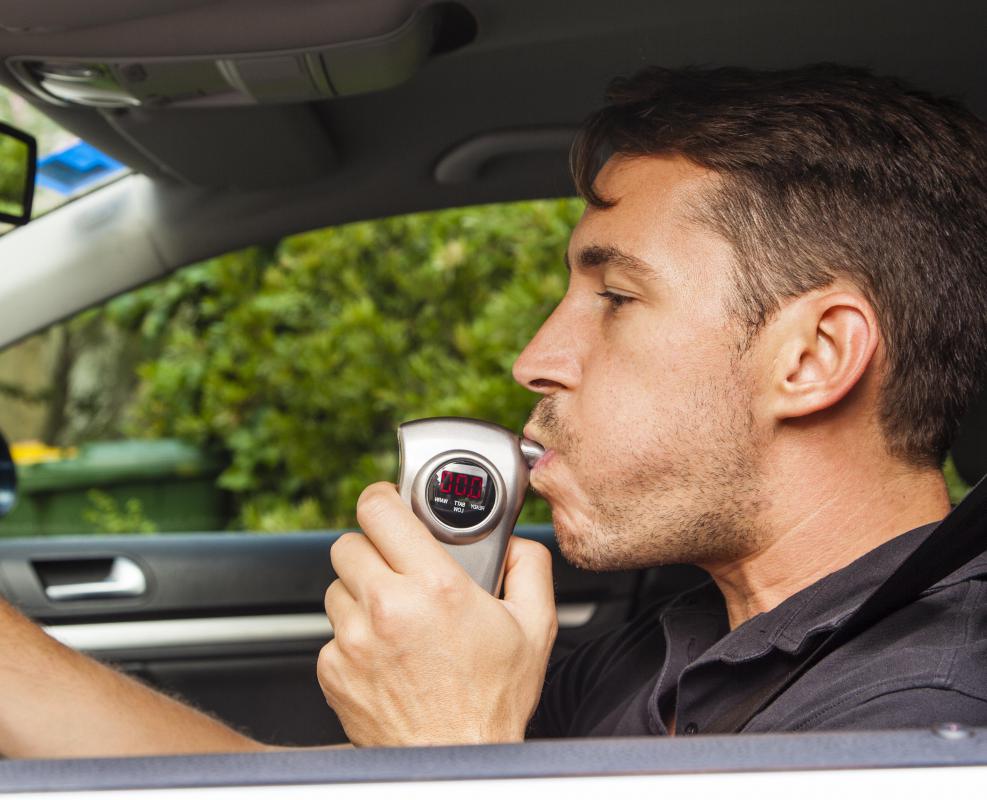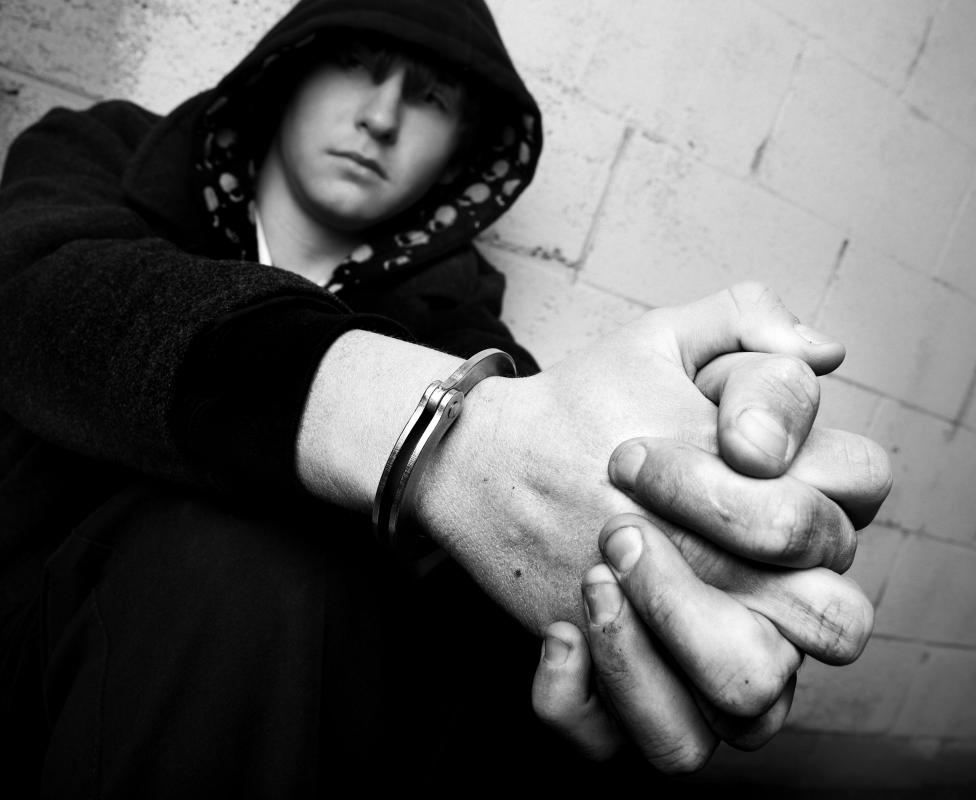At WiseGEEK, we're committed to delivering accurate, trustworthy information. Our expert-authored content is rigorously fact-checked and sourced from credible authorities. Discover how we uphold the highest standards in providing you with reliable knowledge.
What are the Most Common Drunk Driving Punishments?
The most common drunk driving punishments include fines, incarceration, community service, counseling, ignition interlocks, suspension of a driver’s license, and vehicle forfeiture. Upon conviction, a judge, depending on the jurisdiction, may impose one or a combination of these penalties. The punishments imposed for a drunk driving first offense are usually less severe than penalties for subsequent convictions. The degree of intoxication or prior drunk driving convictions may increase the severity of drunk driving punishments.
Fines are the most typical of drunk driving punishments. Fine amounts vary depending on the jurisdiction. Judges often impose monetary penalties on first time offenders. The fines increase dramatically for subsequent offenses. Some jurisdictions allow persons of low income to perform community service instead of paying a fine. Courts may also allow payment in monthly installments.

Obviously driving punishments often include incarceration or jail time. Again, jail sentences vary by jurisdiction. For first offenses, judges often impose jail time, but suspend the sentence while the offender is on probation. If the offender violates probation, the judge lifts the suspension and requires the offender to serve his time in jail. Subsequent convictions often result in a mandatory prison term.

Drunk driving punishments for a first offense usually include community service and counseling. Community service may be any activity that benefits the local area such as picking up litter or working at a homeless shelter for a set number of hours. Counseling usually occurs with a professional that helps a person understand the problems associated with abusing alcohol and the consequences of drunk driving. Some jurisdictions may require an offender to attend a program like Alcoholics Anonymous (AA), an organization that tries to help people overcome alcohol-drinking problems.

Many jurisdictions are requiring ignition interlocks for those convicted of drunk driving. An ignition interlock requires a driver to blow into a device in order for a vehicle to start and to blow into the device at random intervals when the vehicle is in use. If the device detects alcohol, the device prevents the vehicle from starting or it can shut off the vehicle. The device also records the data which a judge may use as a basis to impose drunk driving punishments. An individual must pay to have the interlock installed on a vehicle, pay a monthly fee on the device, and pay an additional fee to have it removed.

Suspension or revocation of a driver’s license may also be included as one of the drunk driving punishments. A judge may revoke or suspend a driver’s license for the actual drunk driving offense. Many jurisdictions also allow automatic revocation when a driver refuses to take a breathalyzer test if pulled over by police. The refusal to take a breath test is usually a separate offense from drunk driving.
Drunk driving punishments also include vehicle forfeiture. This penalty is usually imposed when a driver has two or more drunk driving convictions. Police impound a vehicle and may conduct an auction to sell it in some cases.
AS FEATURED ON:
AS FEATURED ON:
















Discussion Comments
I dunno. Drunk driving is not such a problem in Europe, probably because they have really stiff penalties even on a first conviction. A first conviction always includes jail time and a fat fine. Maybe that's the best way to do it. Just don't play with even first-time offenders at all.
I think a first time DUI could still be a misdemeanor, so someone wouldn't have a felony on their record, but the penalties should be automatic, with no options for a plea bargain. Having mandatory jail time and a huge fine right off the bat might cut down on some of the drunk driving.
In my opinion, the ignition interlocks are probably the best deterrents, but drunks could drive someone else's car, just like they drive on suspended or revoked licenses.
My personal feeling is that, for a first-time offense, offenders should have to watch the autopsy of someone who died in a car wreck. Maybe that would make an impression on some of them.
Other than slapping them in jail and forcing them to go to rehab, there's no way to absolutely keep drunks off the roads, more's the pity.
Post your comments